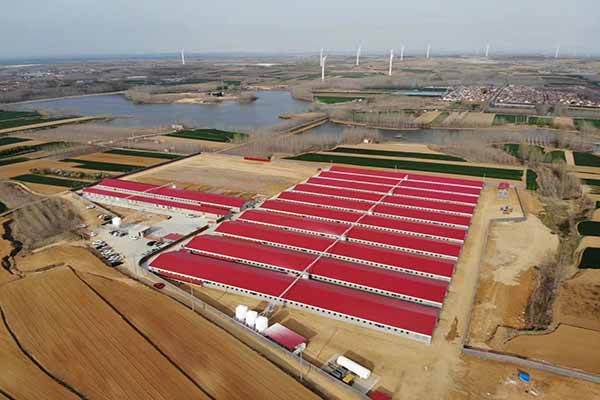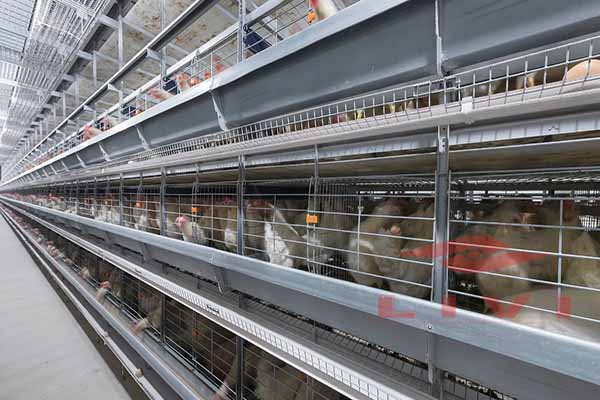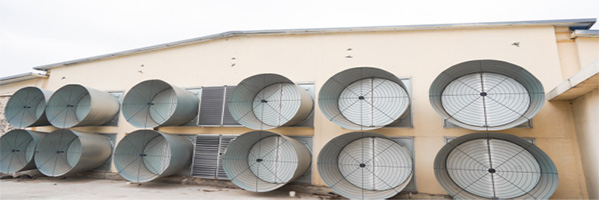Intelligent Management Case of Chicken Farms in Uganda
Time : 2025-06-27
Chicken farming is a vital sector in Uganda’s agriculture industry, providing employment and food security to a significant portion of the population. With the increasing demand for poultry products, efficient management systems are essential to ensure sustainable production. This article explores an intelligent management case of chicken farms in Uganda, focusing on the implementation of advanced technologies and strategies to enhance productivity and profitability.
Introduction to Chicken Farming in Uganda
Uganda’s chicken farming industry has seen significant growth over the years. The country has a diverse range of chicken breeds, including layer hens, broilers, and indigenous chicken species. However, despite the growth, there are challenges such as disease outbreaks, low productivity, and poor management practices that hinder the sector’s potential.
The Role of Intelligent Management
Intelligent management systems refer to the application of advanced technologies and strategies to optimize farm operations. In the context of chicken farming, these systems can help in monitoring animal health, improving feed efficiency, and reducing labor costs. This case study focuses on a successful implementation of an intelligent management system in a chicken farm in Uganda.

Monitoring Animal Health
One of the critical aspects of intelligent management in chicken farms is the continuous monitoring of animal health. This is achieved through the use of IoT (Internet of Things) devices that can track the behavior, feeding patterns, and general well-being of the chickens. The farm in this case study installed sensors in the chicken houses that provided real-time data on the chickens’ activity levels, temperature, and humidity.
By analyzing this data, the farm manager could identify potential health issues early and take proactive measures to prevent outbreaks. For instance, if the sensors detected a sudden increase in the chickens’ activity levels, it could indicate stress or illness, prompting immediate veterinary intervention.
Feed Efficiency
Feed is one of the most significant costs in chicken farming. Intelligent management systems can help in optimizing feed usage and ensuring that the chickens receive the right balance of nutrients. The farm in this case study employed a feed optimization software that analyzed the chickens’ growth patterns and adjusted the feed formulation accordingly.
This resulted in a significant reduction in feed waste and an improvement in the conversion rate. The system also enabled the farm manager to track individual chicken feed consumption, which helped in identifying birds with high or low feed intake, allowing for targeted feeding programs.
Automation of Farm Operations
Automation plays a crucial role in intelligent management. The chicken farm in this case study implemented automated feeding systems, water dispensers, and lighting controls. These systems not only reduced labor costs but also ensured consistent conditions for the chickens, leading to better health and growth rates.

The automated systems were integrated with a central control unit that allowed the farm manager to monitor and control the farm’s operations remotely. This feature was particularly beneficial during the COVID-19 pandemic when physical access to the farm was limited.
Challenges and Solutions
Implementing an intelligent management system in a chicken farm is not without its challenges. One of the main challenges faced by the farm in this case study was the initial cost of setting up the technology infrastructure. However, the long-term benefits of improved productivity and reduced costs outweighed the initial investment.
Another challenge was the training of staff to use the new technology. The farm manager invested in training programs to ensure that the staff were competent in operating the intelligent management systems. This investment paid off as the staff became more confident and efficient in managing the farm.
Conclusion
The intelligent management case of the chicken farm in Uganda demonstrates the potential of advanced technologies in enhancing the efficiency and profitability of the poultry industry. By integrating IoT devices, feed optimization software, and automation, the farm was able to achieve significant improvements in animal health, feed efficiency, and overall productivity.
As the demand for poultry products continues to grow, it is essential for chicken f armers in Uganda to embrace intelligent management systems to remain competitive and sustainable. The lessons learned from this case study can serve as a blueprint for other farmers looking to implement similar technologies on their farms.
armers in Uganda to embrace intelligent management systems to remain competitive and sustainable. The lessons learned from this case study can serve as a blueprint for other farmers looking to implement similar technologies on their farms.











